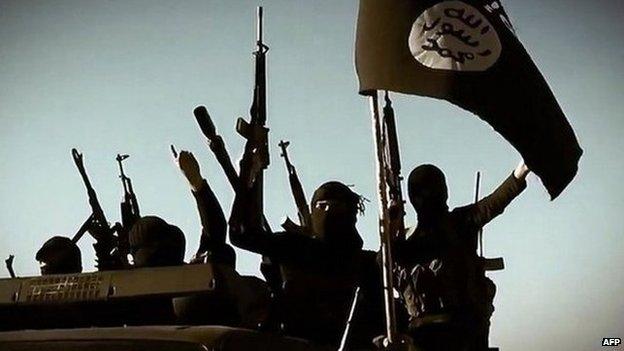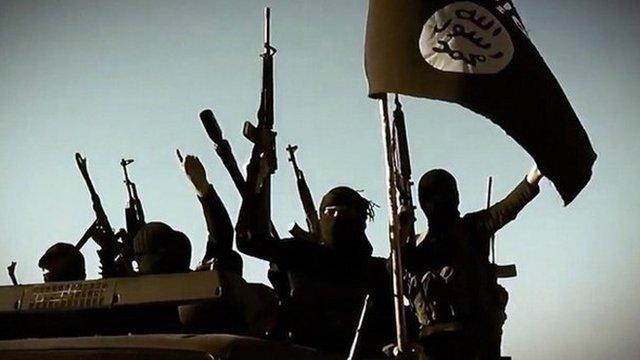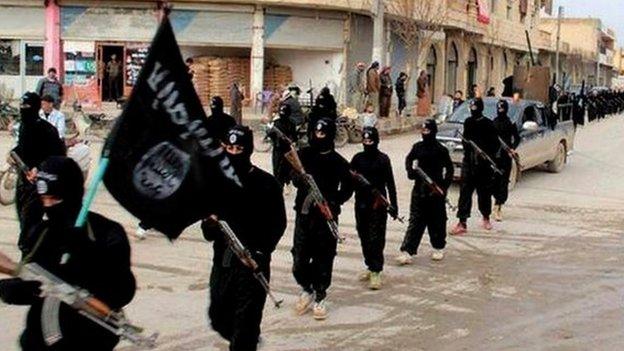Radicalisation is 'political and religious failure'
- Published

Politicians and Muslim religious leaders have not tackled the 'narrative' of a 'plot', says Kim Howells
Successive UK governments and imams in Britain are to blame for the radicalisation of Muslims, a former Foreign Office minister said.
Kim Howells said the failure to deal with radicalised people was often because there was a "narrative" that all Muslims were the victims of a plot.
"I'm afraid the Imams, the religious leaders in those communities, have never done enough to counter it, let alone governments," he said.
Dr Howells was a Labour MP until 2010.
His comments came as police and security services try to identify a suspected British jihadist who appeared in footage of the killing of US journalist James Foley.
The killing was condemned as "an act of violence that shocks the conscience of the entire world" by US President Barack Obama.
Efforts are also being made to discourage people from travelling to countries to fight alongside militant groups. At least 500 people from the UK are thought to have gone to Syria alone to join militants.
Speaking on BBC Radio Wales, Dr Howells said the threat from British-born Islamic State militants in Syria and Iraq was the result of not dealing with their radicalisation in the UK.
During the interview, he said there was concern about what he perceived to be a lack of action from within some Muslim communities to prevent people being radicalised.
He added: "There's very often a narrative out there, a story, that all Muslims are victims of a... plot.
"If you are not doing very well in terms of a job, if your community is poor, it's a very good excuse to fall back on - 'it's a plot against Islam, it's a plot against Muslims'.
'Extremism'
The US says Islamic State militants pose its 'biggest threat'
"Governments have been afraid to touch it.
"They've allowed those communities to become isolated to look inward, instead of trying to integrate with the rest of society, and they've said 'that's alright, that's multi-culturalism'."
Sheikh Zane Abdo, South Wales Islamic Centre, said: "A lot more needs to be done by imams, by parents, and a closer relationship needs to be formed between the authorities.
"Clearly the extremism now is very well organised in the use of social media.
"It may be that some leaders are not familiar with these social media tools. We need to be looking at these tools.
"Imams only preach for 40 minutes a week. Who are they listening to the rest of the time?"
'Barbaric'
Saleem Kidwai, secretary general of the Muslim Council of Wales, said: "These are barbaric people who are using Islam for their own political ends.
"The community is doing as much as it can. There are a lot of factors that influence people. We condemn it. Anyone from any school of thought will condemn it.
"It's not right and it's nothing to do with Islam."
- Published21 August 2014
- Published10 August 2014

- Published22 August 2014
